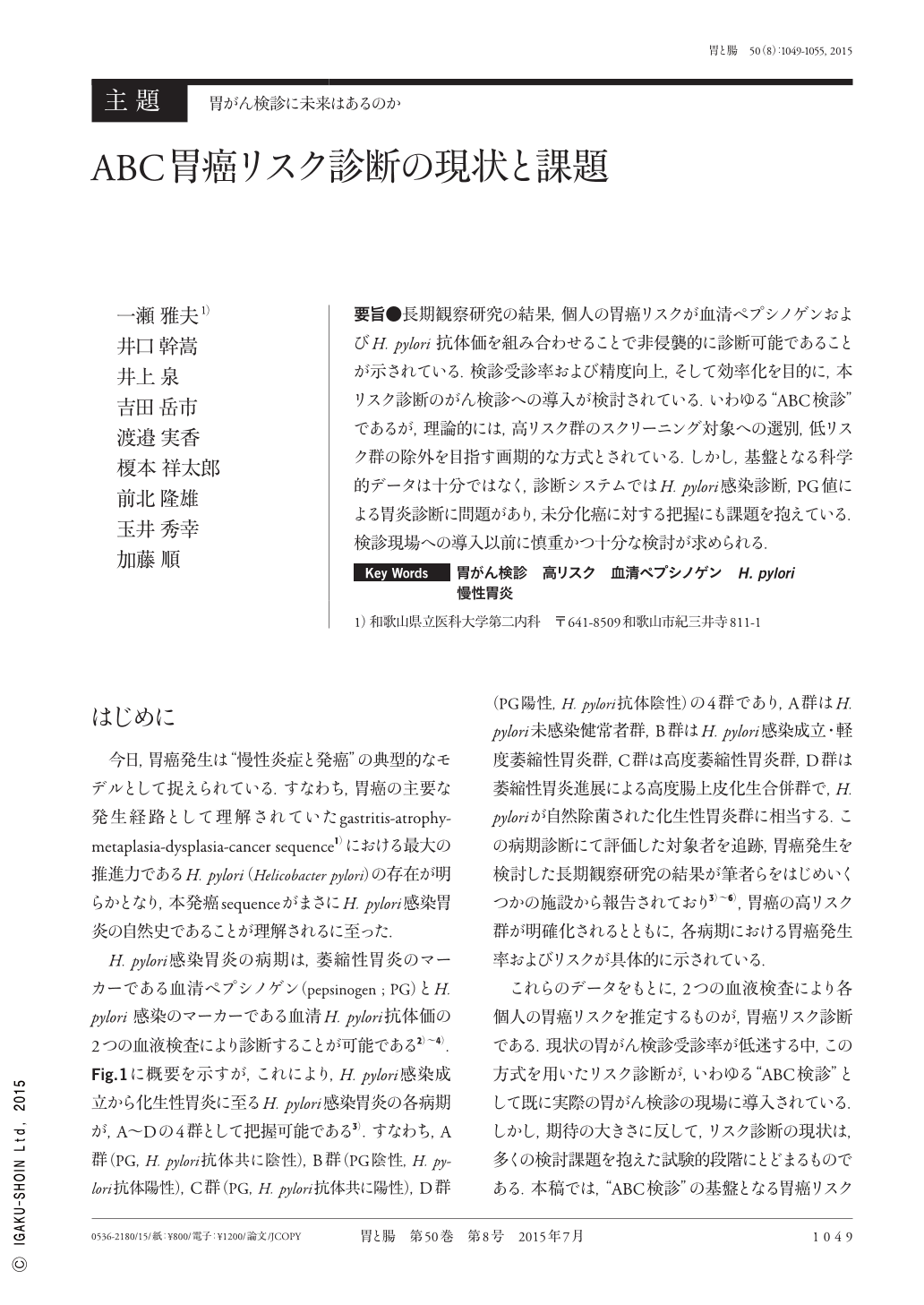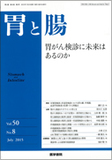Japanese
English
- 有料閲覧
- Abstract 文献概要
- 1ページ目 Look Inside
- 参考文献 Reference
要旨●長期観察研究の結果,個人の胃癌リスクが血清ペプシノゲンおよびH. pylori 抗体価を組み合わせることで非侵襲的に診断可能であることが示されている.検診受診率および精度向上,そして効率化を目的に,本リスク診断のがん検診への導入が検討されている.いわゆる“ABC検診”であるが,理論的には,高リスク群のスクリーニング対象への選別,低リスク群の除外を目指す画期的な方式とされている.しかし,基盤となる科学的データは十分ではなく,診断システムではH. pylori感染診断,PG値による胃炎診断に問題があり,未分化癌に対する把握にも課題を抱えている.検診現場への導入以前に慎重かつ十分な検討が求められる.
Long-term observational studies have revealed that an individual's risk of gastric cancer can be assessed non-invasively by combining two serum tests, pepsinogen and H. pylori(Helicobacter pylori)antibody titer. The introduction of this risk-based assessment method in gastric cancer screening is being investigated for improving screening rates, as well as for the accuracy and efficiency in screening. This so-called“ABC Screening”is considered to be an innovative method that theoretically enables the selection of high-risk individuals for gastric cancer screening while excluding low-risk individuals from screening. However, major issues remain, such as difficulty in the serologic diagnosis of subjects with low cancer risk due to the low sensitivity of presently available tests for serum H. pylori antibody titer or to incomplete exclusion of subjects with extensive atrophy based on the widely-used PG test-positive criteria. Issues also exist regarding the detection of high-risk groups for undifferentiated carcinoma. Thus, careful, adequate investigation is required prior to introduction of this method into actual gastric screening settings.

Copyright © 2015, Igaku-Shoin Ltd. All rights reserved.


